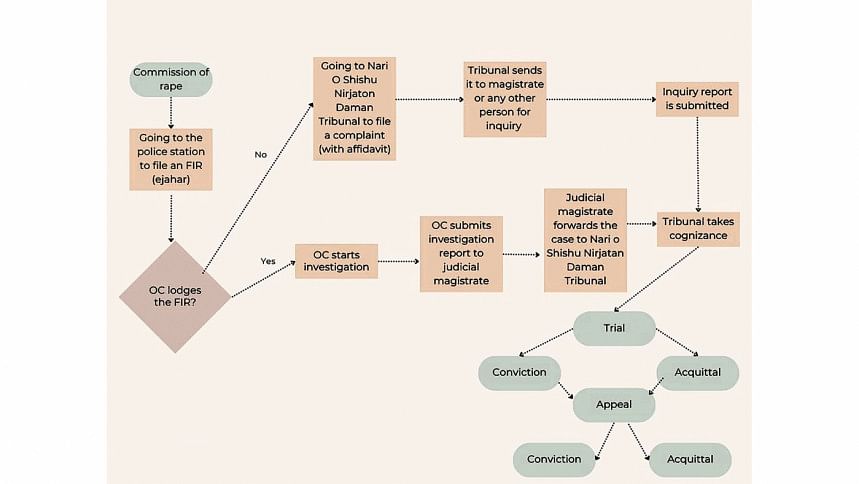Legal steps for a rape victim

A very brief discussion of the possible legal steps to be taken by a rape victim are discussed in this piece. An informer (does not necessarily have to be the victim) needs to first go to a police station to inform the Officer in Charge (OC) about the commission of the rape. The OC is under an obligation to lodge the FIR and start an investigation right away since rape is a cognizable offence. After the completion of the investigation, the OC will submit an investigation report to the nearest judicial magistrate. If the police find evidence against the accused, a charge sheet will be filed, otherwise, there will be a police report explaining the lack of guilt on part of the accused. The Magistrate is not bound to follow findings of the police and may forward the accused to the Tribunal. Since there is a special law for rape (i.e., the Nari O Shishu Nirjaton Daman Ain 2010) it is tried by the Tribunal for speedy and efficacious trials and not by the usual trial courts.

Now, had the OC not lodged the FIR initially, the course of action would have been slightly different. Then the informer could go to the Tribunal directly to file a complaint with an affidavit mentioning that the OC refused to lodge the FIR. Upon receiving the complaint, the Tribunal will send the same to a magistrate or any other person for an inquiry and upon receiving inquiry report, will take cognizance. The accused will be tried in the Tribunal as per the 2010 Ain. After the completion of the trial, an accused may either be convicted or acquitted. Either way, there is the option to appeal the decision. The Appellate Court may either concur with the Tribunal or reverse its judgment.
The Victim should consult a lawyer from the initial stages to ensure that all the steps are complied with properly. Different NGOs provide assistance in such matters.

 For all latest news, follow The Daily Star's Google News channel.
For all latest news, follow The Daily Star's Google News channel. 








Comments